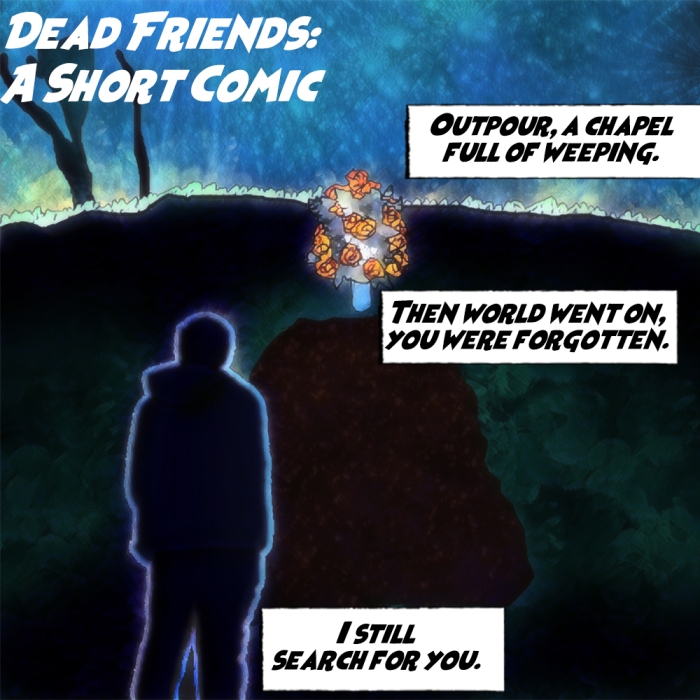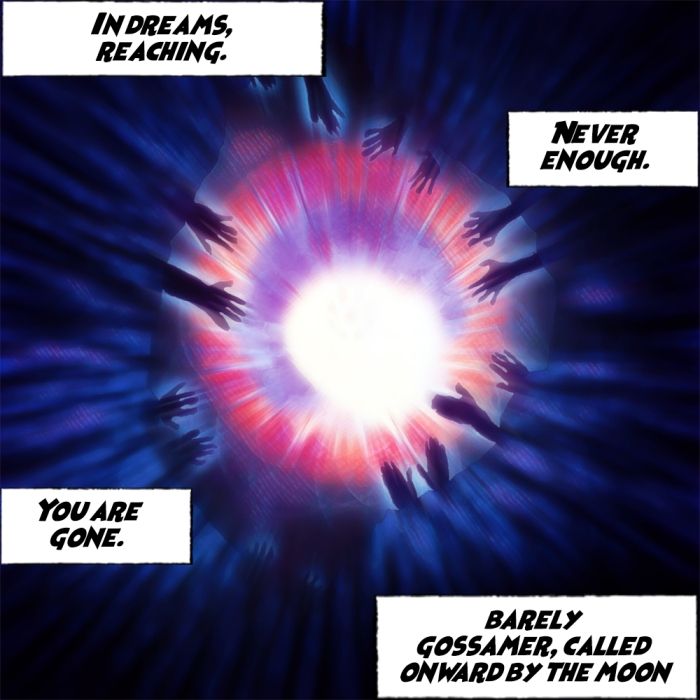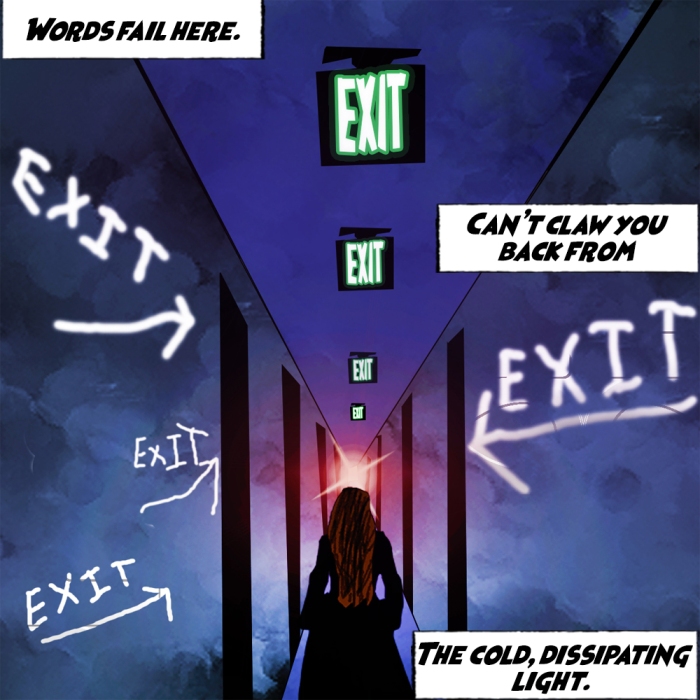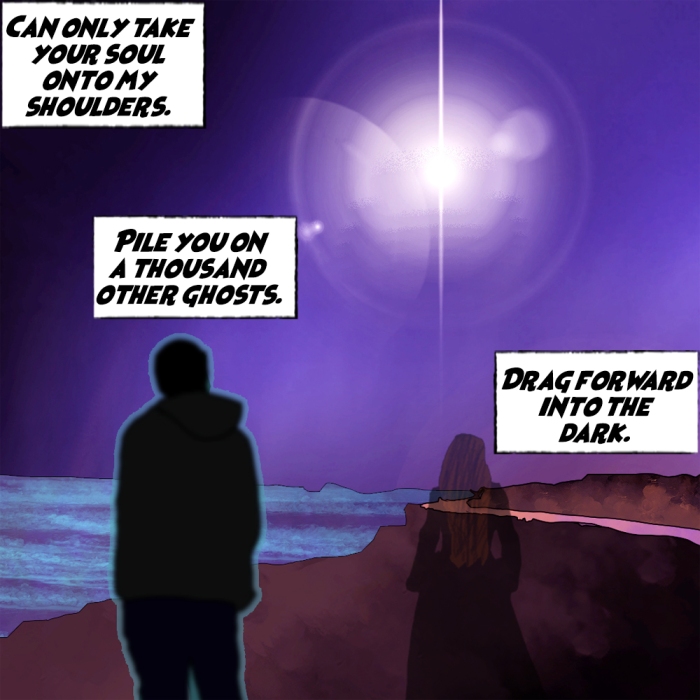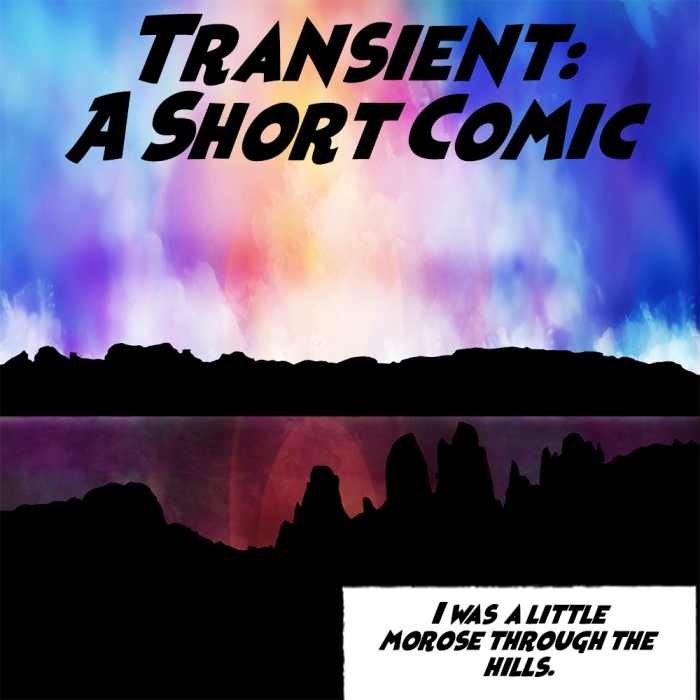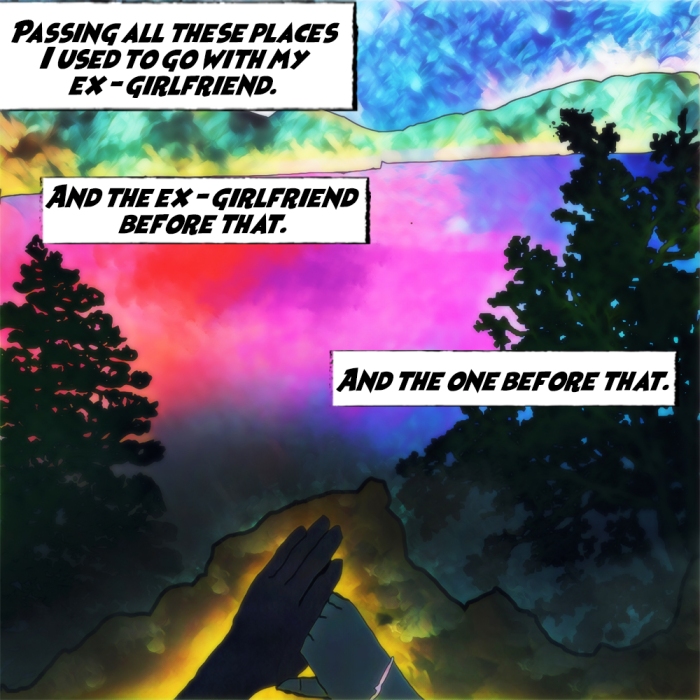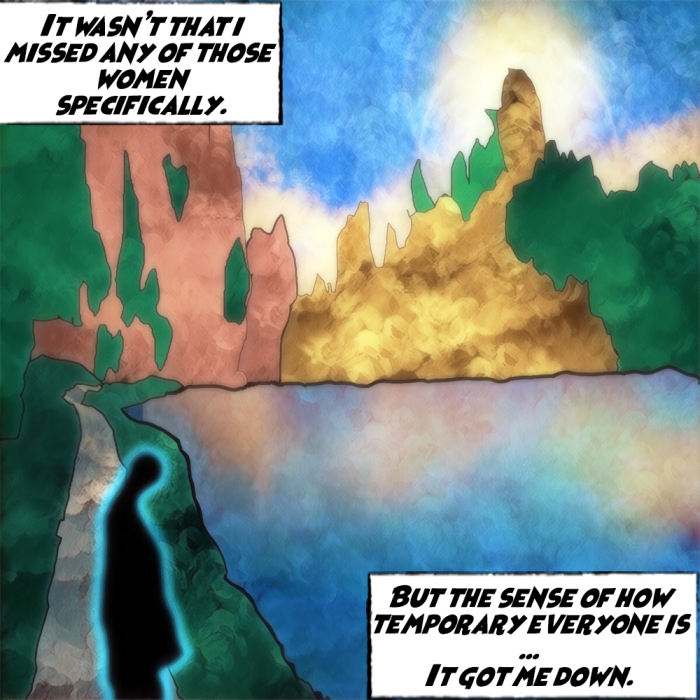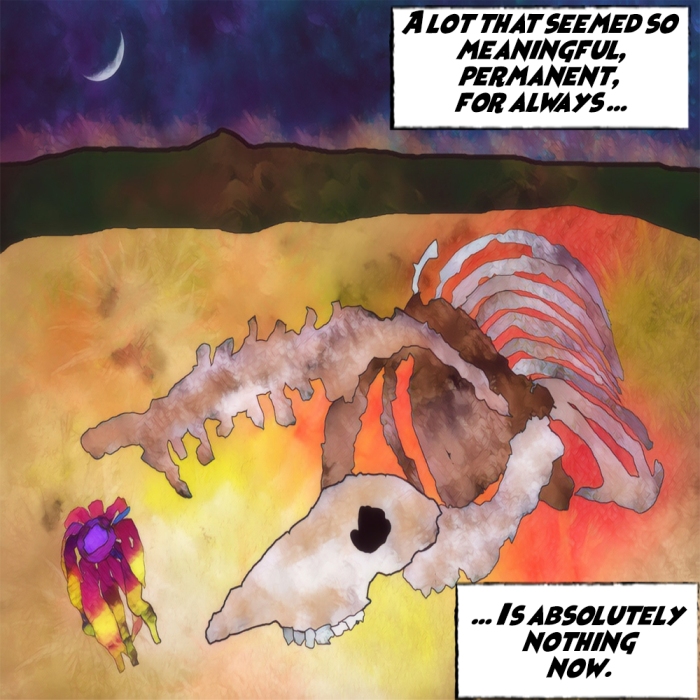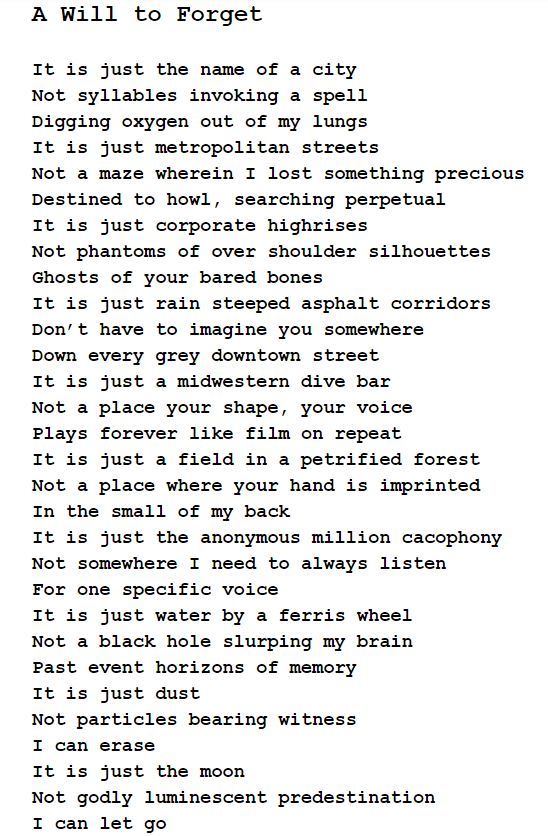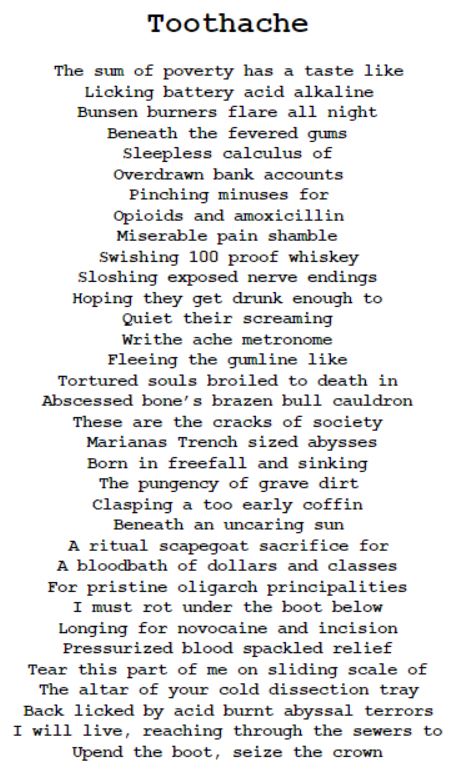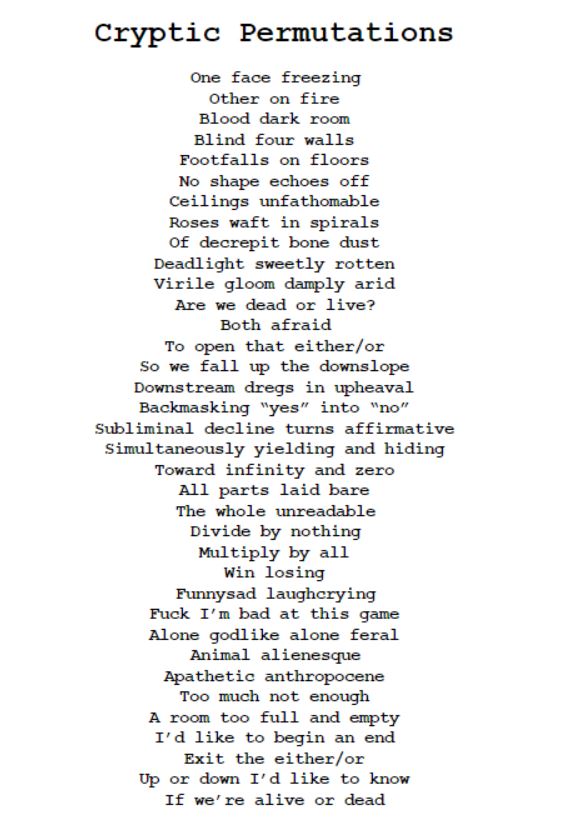Faded marble, faux labyrinthine cathedral architecture — a fitting mausoleum for a bygone age. Three quarters of the structure roped off, closed, abandoned for years. The trains look so rusted and tired. The baggage handlers, clerks, conductors, all old, cold efficient, move with beleaguered weariness as well.
Denver for a moment, though where I am does not matter. Limbo is my true abode. Boston is my destination. Falling through the cracks, getting lost in the gearworks of America, torn to pulverized gristle, is my true direction.
Something seems so colossal and terrifying about this monolithic, technological world. Can a person be an alien to a place, a time, a society, they have been enveloped within for twenty years? I’m an enormous man, yet I am so small in the metropolitan anthill of anonymity.
I take in the persons surrounding me with an alien’s perplexity.
A woman with a son perhaps four years old latches to whomever will listen to her talk about riding these trains to find herself, her desire to start over someplace new.
An older man in a raincoat talks to the woman about his ministry. His tone too happy glibness, stinking of snake oil and used car salesmen.
A travelling performer, part of a troupe of five, entertains the woman’s son by juggling scarves.
At some point the PA crackles on.
“We regret to inform you, the 11 PM train coming in from from Santa Fe will not be arriving. There has been a break in the tracks. The train will now leave 11 PM tomorrow night.”
I throw my backpack behind my head as a cushion. I guess this beaten down wooden bench is my bed tonight. After awhile, I relocate to a dilapidated carpet down a closed hallway. The carpet is quieter, red glow of an exit sign almost soothing.
I lay, half-sleeping. Two security guards emerge from a door and look at me. They do not tell me to move. They say nothing. Yet their glance tells all. I will not be allowed to linger.
So I walk out of the station, rose hued dusk creeping the downtown skyscraper facades. A melange of lights, melted candy colored, twinkle, strobe, pulse, and dance.
It is near Christmas. Totally alone, you forget these things. Holidays cease to have meaning when you are outside of everything.
Women and men in business casual wander storefronts, looking for the latest techno bauble to buy their children. Yet look, and it is obvious two worlds overlap on the street. The business casual world doing their best to pretend the other world does not exist, even when it is walking alongside them.
The other world, the less polished human detritus, my world, looks for a heating vent to warm their backs against. Suburbanites, mostly 9-to-5, middle income, middle class, make haste between buildings. We the dregs, the driftwood, castaway, world wanderers, addicts, all who never fit anywhere in this machine, shuffle leisurely. When you are going nowhere there is no reason to arrive quickly.
We will still be here in the cold when the rest huddle from the bonechill winds in their houses. We will press our face against the plexiglass watching lights of yet another town fade behind us, no roots to lay, as they enjoy their family and friends.
Walking the streets of an unknown place where you know no one is cloaked with strange invisibility. People are aware of the dimensions of your physical being, moving so as not to collide into you. But no one notices you. You could lay on the ground, curl in a fetal position and die. No one would notice. They would just step around you.
A man with a placard around his neck declaring that the end times are near in bold red letters meanders downtown hollering. Most shoot him an annoyed, amused glance and move on. One perhaps college aged woman yells “right on dude”.
Always amazing what the unknown streets bring and take away in an instant. A woman, short, maybe not even five feet tall, captivates my attention as I stand waiting for a stoplight to change.
I don’t wish to stare. Yet dying sunlight catches her hair on fire and it is absolutely resplendent. She is talking to a homeless man on a bench. Something about her poise impresses me. I catch a snippet of their conversation:
“I saw you, and wanted to see if you were alright…”
And I want to meet this short woman who talks to the homeless in the downtown. I’m curious about her story. Yet I move past, saying nothing, to never see her again. It is for the best that I remain unattached. It is for the best I move like a ghost through the world. Barely seen, barely heard, just passing through everything.
And really, what did I think could possibly happen doing otherwise? Would I make a friend? But what good would that be, when in a day the trains would take me away forever? Was I attracted to the woman? Should I have asked her on a date? But where could that possibly go?
“Hey, I’m riding the edge of oblivion, with next to no money, jumping trains to avoid the emptiness of life, hoping what’s over the horizon is better than what I left behind, filled with questions that have no answer, and journeying without destination. I like you. Care to attach yourself to this rolling stone?”
Sounds romantic, but there is nothing safe about the journey I’m undertaking. And involving anyone else on this road is probably irresponsible. I have no idea where this all leads. The road sometimes spins such beauty before me, persons that intrigue me so much. But I leave them behind. I rarely try to delve too deep into knowing anyone. Because the deeper I know them, the deeper it will gouge when I have to leave them. When they are just relics of the lights of a town fading further down the highway.
The sun is gone now. Several persons huddle against the exhaust grates for warmth. Some settle in alleyways, wrapped in large coats or blankets. I return to the train station. I sprawl out on one of the giant wooden benches. They have turned some of the flourescent lights off. The glow is not so harsh. I tie my bags to my hand, so they cannot be easily pilfered should I fall asleep. I try to get as comfortable as possible with a backpack for a pillow, an ancient wood bench as my bed.
